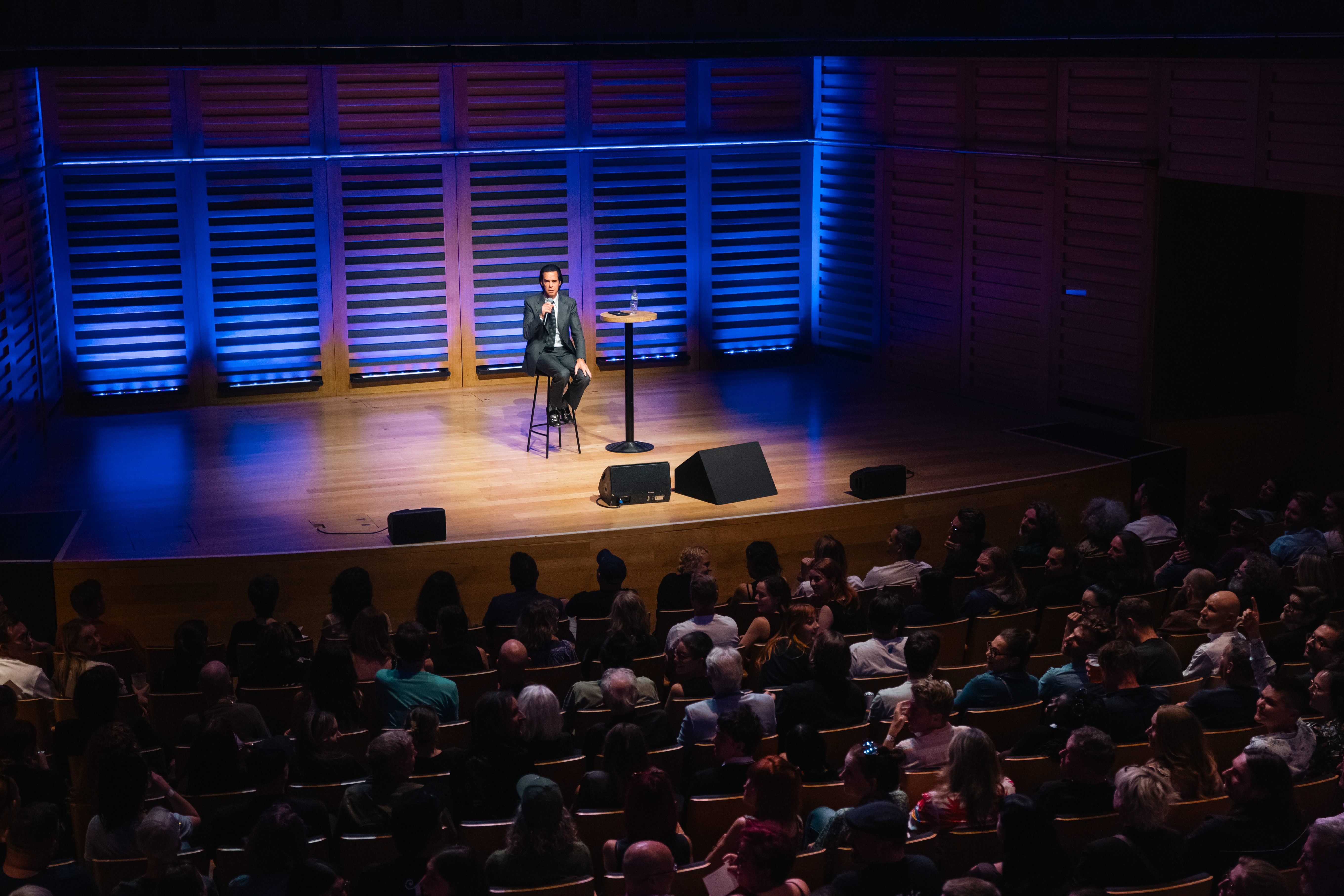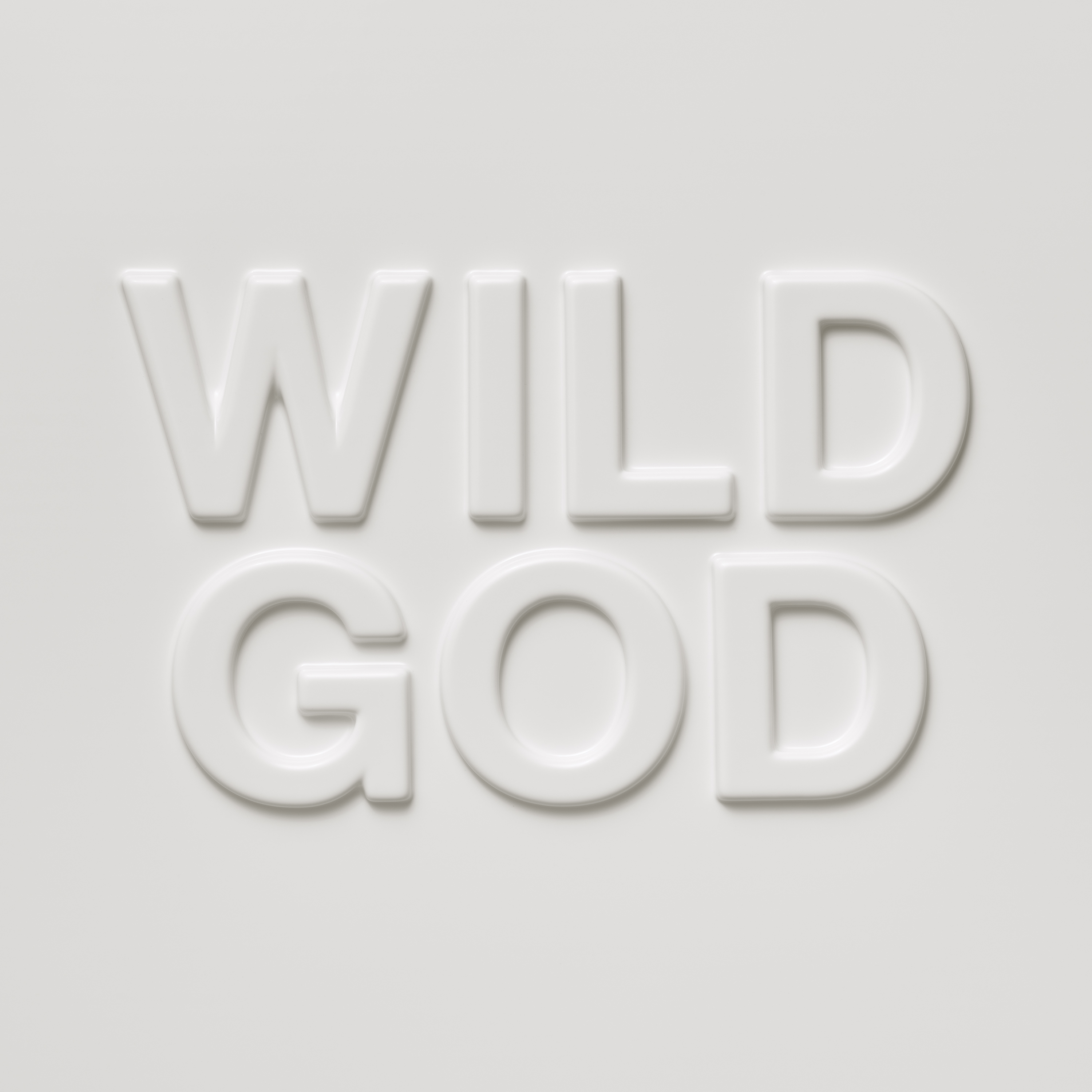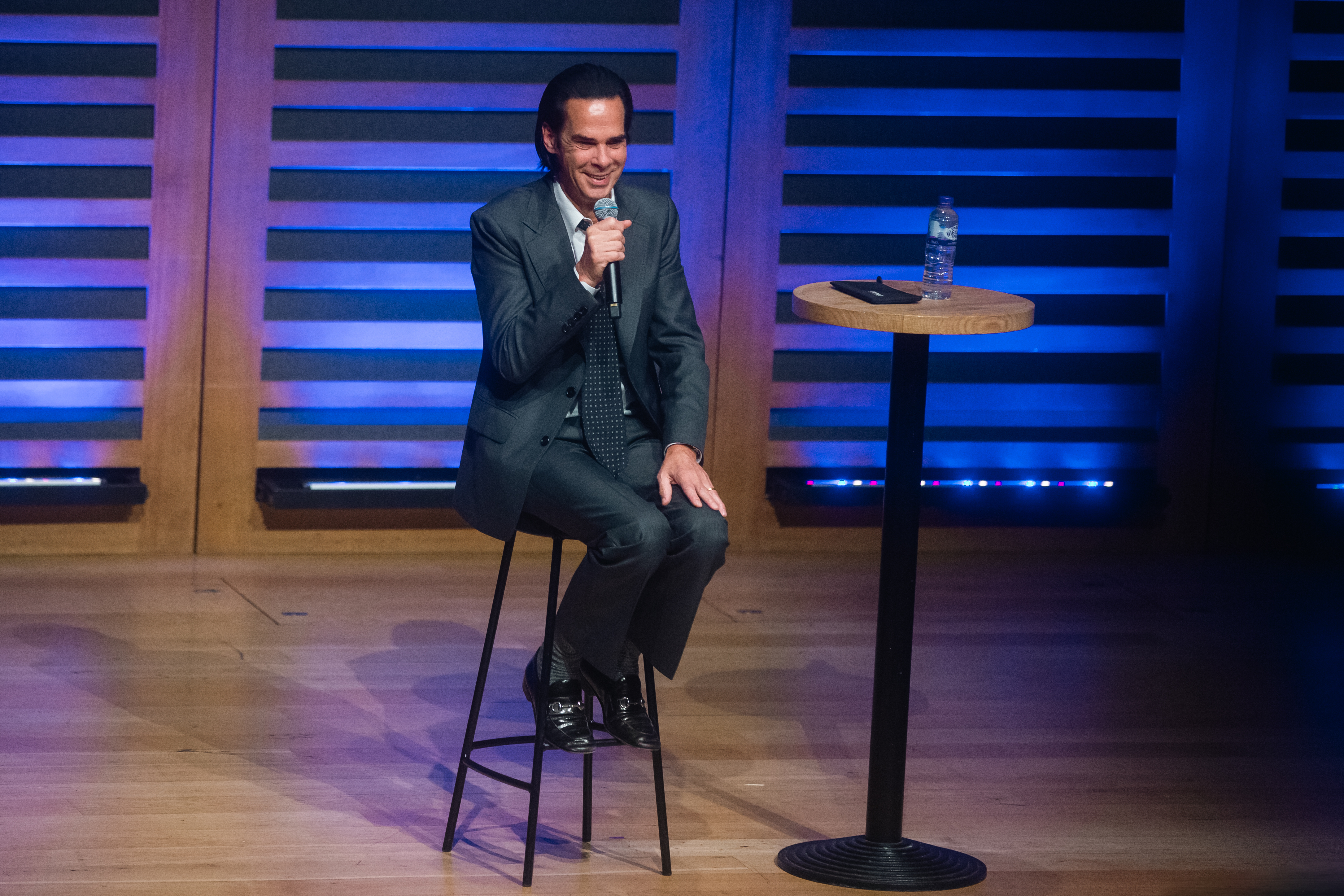Nick Cave’s reflections on all that is wild
On the evening of the 29th of August 2024, hosted by Rough Trade and London’s Kings place, Nick Cave sat down to answer our questions.
All quotes from Cave are from this event unless stated otherwise.

Nick Cave and the Bad Seed’s 18th studio album, Wild God, follows a string of relatively minimalist sounding records. The preceding trilogy are distinguished by their drifting electronic ambience and the band is used mostly decoratively. Cave has stated that, for Wild God,
‘When I sat down on that January 1st to write the songs, one thing I knew is that I wanted to get the Bad Seeds back into the studio’

The Wild God album exists in an enclosed space of colliding elements, its energy building upon each impact. Moments of ghostly synths, that carry quietly confrontational lyrics, suddenly burst into rapturous movements of choir and strings. Cave described a conversation with the album’s producer Dave Fridmann about the record’s ‘purely emotional feel’, to which Fridmann responded, ‘I would trade elegance for raw emotion any day of the week’.
Wild God does not move on one straightforward timeline, but embodies a surge of endless and paradoxical moments occurring all at once. And according to Cave,
‘When it hits, it hits’.
The listener of Wild God is placed outside, amongst the wind and the rain. Instead of hiding all away, this is a weather we embrace. In Frogs, we (amongst the amphibians), are out in the ‘Sunday rain’ and are simply ‘amazed to be back in the water’. We are faced with this element- perhaps of life, purification, or our fluid interconnectivity- and we are full of joy, we leap upward, we hop. Throughout the turbulent record, the elements of nature crash and blend, perhaps most of all in the title song, where we witness a communication between the ground and the zooming voice of the sky. Like the rain, Wild God speaks down to us, hitting us in small fragments that build up to something massive.
Cave revealed that during his writing process, the image comes first. The subsequent words that mysteriously arise are found attached to those images. There is the sense that, amidst the contrasting elements, it is something singular that weaves this record together- whether that may be the image of a lurking figure, or a string of long trailing hair, guiding us through the storm. Perhaps it is this sense of a great singularity, with the power to hold the otherwise boundless energy, that manifests into God, for Cave.

Cave describes the inherent emotion and life of the album in a similar light to which he describes his faith- in the sense that, any intellectualisation is secondary. Nick was asked to elaborate on a quote from the Bible, referenced during his conversations with the Archbishop of Canterbury, in which a man cries out to Jesus ‘I believe; help my unbelief’. The asker suggested that within the album, belief and disbelief seem to sit paradoxically side by side. Cave answered candidly that he ‘does not see the difference between the two’. We are told that his religious nature is not predicated upon either and that religion instead symbolises a place, ‘constructed for the most vulnerable aspects of one’s character’. The matter of belief or disbelief becomes a secondary issue, and it is the tension between the two which, for Cave, becomes ‘the creative space’.
It is with this notion that we can understand the true power of the Wild God; its ability to hold onto seemingly paradoxical ideas without letting one consume the other, and in doing so revealing to us unconventional truths. We are brought back to the looming question of ‘why there is so much damn water’ (in Cave’s words from the Red Hand Files issue #277). I think that most of all, water here acts as the means for all the preconceived ideas we collectively possess to dissolve into each other. In Song of the Lake, the man ‘knew that he would dissolve’ if he entered it (perhaps this is too the position of the listener). Cave said that In Frogs, the ‘ever-circling, escalating music’, with a constantly changing time-signature, builds to transform a ‘small idea’ into a ‘big, swirling, abstract thing’. He describes it as becoming a ‘religious experience’, ‘a kind of death of some sort’.
I am reminded of the documentary 20,000 Days on Earth, where Cave states,
‘I am not interested in that which I fully understand…
This shimmering space, where imagination and reality intersect… this is where all love and tears and joy exist. This is the place. This is where we live’.
Joy is perhaps the most persistent element of Wild God, which once again seems almost contradictory to the sense of personal loss and grief which sit right beside it. In the same Red Hand Files issue (#277), Cave raises the question of ‘why this record is so joyful when almost everyone in the songs is dead’, and perhaps here on August 29th he has answered it. Cave explained that ‘for me, joy is not happiness, joy is a hard earned feeling. It is a feeling that you understand the nature of the world, that you understand the nature of loss in the world… But it reveals the capacity to feel otherwise’, to leap upward.
Nick Cave and the Bad Seeds are no strangers to creating music that manages to be melancholic and uplifting at once. As well as elating choruses, there are moments of pause here, and deep descents into darkness. It is unclear as to whether a long dark night is coming down insinuates a beginning or an end to the night. Perhaps it is coming down on us like a cold, bringing us further with its heavy gloom. Or, is it moving down, making way for the new day to take its place? My interpretation is that this is another moment for us to embrace the sky, and that the noble dark night extends itself to greet us, by its long trailing hair, encompassing us in the safety of its shadow.
The record’s downward movement is inescapable. The sole instruction given to us in the title track is strangely to ‘bring your spirit down’. In Joy, the speaker ‘jumped up’ only to fall back down to his knees. Crucially though, this line is repeated: the speaker jumps up again and falls back to his knees once more. Perhaps this is how Cave alludes to joy’s ‘hard-earned’ quality, and disputes the idea that we simply ‘jump for joy’. No, we also fall, crawl, and pray for joy.
In the Red Hand Files issue #291, Cave articulates,
‘I do my best to move through life with a joy that is reconciled to the sorrow of things but is not subsumed by it, that apprehends darkness and is not afraid of it.’
The confrontation of these deeply personal experiences, while terrifying, is vital. Cave said, ‘I try to write about the things that are closest to me… that are often very ordinary things, and blow life into them…so that they are not just universal in their scope but they are grand in their scope, and hope that it reaches people’.
With lakes and oceans, truly, the Bad Seeds have created a massive sound, with Nick there to ride the wave.
It has certainly reached me. I cannot wait to experience it live in October!
Mia Breuer





















